 Home affordability is the highest right now in 42 years, according to the National Association of Realtors. The home prices have also been down more than 30% from their 2006 peak.
Home affordability is the highest right now in 42 years, according to the National Association of Realtors. The home prices have also been down more than 30% from their 2006 peak.
While buying a home is not to be taken lightly, this news makes it ideal for homebuyers, especially those looking to buy for the first time.
Buying your first home can be challenging, especially in booming markets such as Tuscon. Being a seller’s market, the situation is already difficult without considering your lifestyle and financial situation. This article walks you through over 20 common pitfalls that first time homebuyers make that you can avoid.
Avoid 21 Mistakes First Time Homebuyers Make
First time or not, you need to be prepared for it. Being knowledgeable about the market and the home buyer mistakes to avoid takes you a long way into making a successful buy.
Here are some of the most serious mistakes you would want to avoid when you are a first-time homebuyer.
#1 Buying a House When You Are in Debt
It’s never a good idea to buy a home when you are already in debt. This includes credit cards, student loans, etc. With a new mortgage, you are just burdening yourself with more financial trouble, and even if you manage to buy a home, you are just one emergency away from foreclosure. Moreover, if anything breaks in your home, you wouldn’t have the means to fix it.
Instead, push your search on the back burner for now and pay off all existing loans. After your debt has been paid off, save a minimum of three months of living expenses as your emergency fund and then start saving for your down payment.
#2 Not Putting Forward a Sizeable Down payment
A survey by NerdWallet, concludes that 11% of its participants under the age of 35 agreed that low down payments were a mistake.
While you would have to pay 20% as a down payment ideally to avoid private mortgage insurance, it is not the case every time. Anything less than 10% is too little. With larger down payments, you can score a low interest rate, smaller mortgage, lower monthly payments, and better equity.
For example: Consider a home with a purchase price of $300,000. With a down payment of 5% or $15,000, you’d have to take a mortgage for $285,000. You’d have to pay this over the period of the loan with accrued interest and mortgage insurance payment.
However, with a down payment of 20%, you’d have to take out a mortgage for just $240,000, which may be easier on the pocket later on.
In short, you want to make sure that your down payment you make should allow you to afford the mortgage payments without crimping your budget.
#3 Not Utilizing the First Time Homebuyer Programs
Not all first time homebuyers have their down payment and closing costs saved up. That doesn’t mean that you have to delay buying your home until everything lines up. There are many low-to-no-down-payment programs, including state and federal loans, that cover your down payment as well and at competitive rates.
These loans make owning a home easier for first time homebuyers. By not utilizing them, you are missing out on invaluable assistance from the government. Talk to your mortgage lender about programs and grants for first time homebuyers.
On the downside, few lenders may not provide financing for houses purchased through these programs.
#4 Ignoring FHA, VA, and USDA Loans
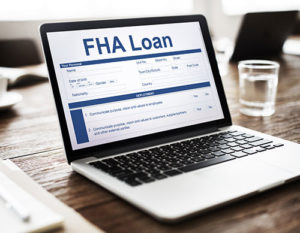 On the lookout for conventional loan programs, we miss out on special assistance programs such as FHA, VA, and USDA loans that make life easier for you. Their programs require very few qualifications such as no down payment, a low credit score, no mortgage insurance, etc.
On the lookout for conventional loan programs, we miss out on special assistance programs such as FHA, VA, and USDA loans that make life easier for you. Their programs require very few qualifications such as no down payment, a low credit score, no mortgage insurance, etc.
The FHA (Federal Housing Administration) loan is ideal for people who have had financial issues in the past and have trouble qualifying for other loans. You may also still qualify to get the loan even if you’ve filed for bankruptcy or struggled financially in the past.
- FICO Score of 580+
- Down payment of 3.5%
Apart from the above, VA Loan or veteran assistance loan requires:
- FICO Score of 620+
- Certificate of Eligibility from the VA
- Debt-to-income ratio – 60%
USDA loan is backed by the U.S. Department of Agriculture, which allows you to roll the closing costs into the loan.
- FICO Score of 640+
- Household income below USDA limits
- Your home should be in a rural or suburban area.
#5 Buying the Best House You Can Afford
However beautiful the home may be, do not reach for one that is beyond your price range. This is important, especially in the current times when the home prices are on an upward curve.
Buying a home beyond your budget puts you at risk for foreclosure since it makes you increasingly open to financial stress. Furthermore, the monthly payments are liable to leave little room for other bills and expenses.
Instead of focusing on the amount you qualify for, check how much monthly payment you can afford in the long run, along with the other financial obligations.
Ideally, your house payment should not be more than 25% of your take-home pay. And that includes principal, interest, property tax, homeowner’s insurance, homeowners association fees, and mortgage insurance if applicable.
Do not forget to add these when considering how much you can afford as your monthly payment.
#6 Ignoring Resale Value
While it doesn’t make sense to consider the resale value now, it will matter at some point in the future when you plan on selling.
Research says average American life in a house for about ten years. With that in mind, consider the location and the neighborhood before buying your home.
Take time out to study your neighborhood.
Are there any boarded-up businesses? Are there any empty houses? If your answers are affirmative, people seem to be moving out.
Look out for developments like water, gas, or septic lines, as they may add value to the neighborhood.
#7 The Wrong Mortgage
As mentioned earlier, there are a lot of mortgages aimed at getting you a house no matter the financial situation. But, the truth is they can drown you in interests and fees, which you will find difficult to recover from the burden.
The wrong mortgage can tie you up to decades of financial stress.
What is the right mortgage? Well, that depends on the situation. All in all, a fixed-rate mortgage offers better terms, saves money in interest, fees, etc.
Even with all the loan options available, it is better to stick with a conservative mortgage. Compare the different mortgage terms and how they affect your monthly payments and total interest.
#8 Neglecting Mortgage Preapproval
The current real estate market trend favors sellers rather than buyers, which means more demand for affordable homes than available. In a competitive market, you can quickly lose your property to another buyer if you are not pre-approved.
A preapproval letter attached along your offer shows the seller that you are a serious buyer and that your credits and finances are stable enough to get a home loan. Besides, it also means that the paperwork process moves faster as you begin your home search.
#9 Picking the Wrong Lender
As much as it is essential to find the right real estate agent, the same translates to a lender. Having the right lender is the most crucial step in your home buying process.
The right lender gives a home buyer multiple choices for a down payment, mortgage payment, term, and other factors that go into buying a house.
Never allow a lender to dictate the terms. Ask for the explanation behind their financial recommendation, and if they do not provide one, it is better not to engage.
The process of closing on a home is vast; the mortgage application itself requires a lot of documentation and paperwork. You’d want someone who takes time and explains everything to you. Do not forget to take into account the customer service and the closing time.
Keep in mind that a suitable lender takes you on the right path and can save you some money along the road.
#10 Getting just One Quote
First time homebuyers often go with the first bank or financial institution they get the quote from. According to Freddie Mac, you will likely save $1500 for every new lender you get a quote.
The more quotes you get, the better interest rates and loan terms you get. Not just that, you also get more data to compare and shop around.
Talk with three different lenders and mortgage brokers. Compare the interest rate, loan terms, lender fees, closing costs, etc. Not only do you want someone with low interest rates but also with better closing time.
#11 Not Reviewing Credit Reports
According to Federal Reserve, 90% of US homeowners who took out mortgages had a credit score of 65o while 75% had 700 and sometimes even more.
Your credit report plays a vital part in establishing your mortgage amount and interest rate. With a conventional loan, you would need a credit score of 65o; however, 700 or more would be ideal.
If your score is low, the chances are that you may have missed a few payments on time. In this case, you can expect your interest rate and APR to be higher.
First time homebuyers may not be aware that paying the bills on time doesn’t warrant a good credit report. Even if you have been handling your finances responsibly, the chances are that there could be errors hurting your score.
Look for tweaks you can make to increase your credit score before getting into the home buying process.
#12 Ignoring the Neighborhood
While focusing on the home itself, home-buyers make the mistake of ignoring the neighborhood, access to amenities, school district, etc.
While you may love your new home, the chances are that you won’t prefer living there with a wrong surrounding area with poor access to amenities. And selling it will also be difficult since it may not fetch you a good resale value.
Drive around the neighborhood. Look around for parks and schools. Make a note of the businesses and schools around the home. And most importantly, your neighbors should be welcoming.
And coming to the exterior, pay attention to the yard. Any long-term issues like water pooling should be considered serious since they may affect the foundation. Also, consider the size of the yard. Is it enough for the kids to play.
#13 Not Shopping Around
While you need to compromise to some degree when it comes to house hunting, do not cave on the most important things.
Do not buy a condo just because it is cheaper than a home. In the same line, do not go for a one or two-bedroom house when planning on having children. These are not compromises rather strains that would not work in the long run.
Unless you are looking for a more customized home, there will be something similar in the same neighborhood. Look for homes constructed by the same builder, and you can find a home with the same features.
So, shop around and be open to a broad market. Use real estate apps and websites to narrow down the process depending on your price range.
#14 Moving Too Fast
Buying a home is complex, especially when you get into the mortgage process. The biggest mistake home-buyers do hurrying up with the process without any plan. This can cost you later on since you would not be able to save enough for your down payment and closing costs. It also prevents you from addressing the issues in your credit reports.
What you can do is extend the timeline to at least a year or even more. Remember that it may take years to save enough for a down payment and repair your credit report.
Ideally, homebuyers should be paying down the debt, saving money, and boost their credit score in preparation for buying their first home.
#15 Dragging Your Heels
Your first home is special. While you prefer to wait around to make a careful decision, you may lose the property to the competition. Losing the property you put so much time, and effort in can be heartbreaking.
The home buying process can be long and drawn out until you find the perfect home. It takes time and effort from your regular activities and works to make it work.
Do not drag it further unnecessarily. At the same time, you do not want to rush into buying a home either.
To put it another way, the moment you find a home that you love, pounce in with an offer. If not, someone else might, and you will have to continue with the search. Do not underestimate how slow and laborious house shopping can be.
#16 Emptying Your Savings
 Generally, first time homebuyers dump everything they have in their savings account towards a down payment, thereby draining it of even emergency funds. The mistake they make is when they ignore or do not account for the unexpected fees associated with purchasing a new home. If you do not have any funds set aside for these expenses, you could end up in dire financial straits.
Generally, first time homebuyers dump everything they have in their savings account towards a down payment, thereby draining it of even emergency funds. The mistake they make is when they ignore or do not account for the unexpected fees associated with purchasing a new home. If you do not have any funds set aside for these expenses, you could end up in dire financial straits.
When the opportunity to buy a home arises, make sure that you have money set aside for the closing costs and the other expenses.
#17 Miscalculating the Hidden Costs
Most first time homebuyers are unaware of the hidden costs that come with buying a home. The hidden fees include:
- High utility bills
- New utilities
- Homeowner’s insurance
- Maintenance and repair
- Property taxes
- Furniture
When you do not anticipate these costs, you may end up touching your emergency funds. Add the expenses to your savings goal and save them before buying your home.
Remember, the mortgage payment doesn’t account for the costs of homeownership like utility costs, property taxes, maintenance, etc.
#18 Not Planning for Closing Costs and Moving Expenses
Most first time homebuyers focus so much on the prospect of a new home and the down payment that they forget about the closing costs and the other expenses that come with buying a house.
Closing costs, including the appraisal fee, inspection fee, property taxes, insurance, and legal fees, will be around 3 – 4% of the purchase price. For example, for a home valued at $300,000, the closing costs would be around $9,000 – $12,000. The catch is that you would have to pay this before the closing date.
And, then there are the moving expenses. The moving expenses can be anywhere between $650 – $1,800 for 100 miles. Ensure that you plan ahead for these costs, save up along with your down payment and then jump on the housing market.
#19 Skipping Home Inspection
It is wise not to look at appearances like cosmetic issues, lousy landscaping, and outdated carpeting if you are looking for a good deal. Instead, concentrate on the structure such as roof, foundation, floor plan, etc.
One way to ensure a sound structure is via home inspection. It helps you avoid disasters and give you a thorough idea of the electrical, plumbing, heating, and cooling systems, design, etc.
While a home inspection costs a few hundred dollars, it is worth the information it provides.
#20 Forgetting about Homeowner’s Insurance
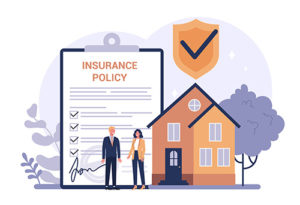 Another potentially costly mistake first time homebuyers make is avoid taking necessary insurances. Title insurance and homeowners’ insurance are the two most important insurance you may want to consider.
Another potentially costly mistake first time homebuyers make is avoid taking necessary insurances. Title insurance and homeowners’ insurance are the two most important insurance you may want to consider.
In case there is content to the title of the home, the former comes to your aid and likely pays off to ensure that the house is yours.
On the other hand, homeowner’s insurance helps you during a fire, flood, and other natural or manmade disasters. Not only should it replace your belongings but also help you to rebuild your home.
#21 Taking on Credit While Closing
The period between applying for a mortgage and finalizing the loan is crucial. You may want to refrain from doing anything that hurts your credit score, like a new credit card, auto loan, student loan debt, etc.
Your lender will check your credit score a week before closing, even though it has already been done earlier. If there is a change in credit score or debt to income ratio, the interest rate is bound to change along with the fees. This can result in delays or even cancellations.
Wait until after the closing to apply for new credit cards, furniture, or appliances.
Conclusion
Buying a home is a significant decision, especially if it is the first time. It defines financial freedom and maturity, making the buying process an emotional one.
However, it is essential that you make rational decisions and not get wrapped in the notion of a dream home. You need to be able to make a sound financial decision while also committing yourself to the task.
To achieve this, you should be aware of the common mistakes first time homebuyers make in order to be able to avoid them. Equipped with the knowledge you should be able to save for a down payment, find the right mortgage, get preapproval, and finalize your new home.
Remember, every mistake mentioned above could not only cost you thousands of dollars but wreak emotional distress as well.
The people at Altitude Home Loans bring many decades of experience in doing loans the right way. If you are interested in purchasing a home, contact one of our Loan Officers today and we’ll guide you through the Home Loan application process. You’ll be glad you did.
Related Article: First-Time Homebuyer’s Guide




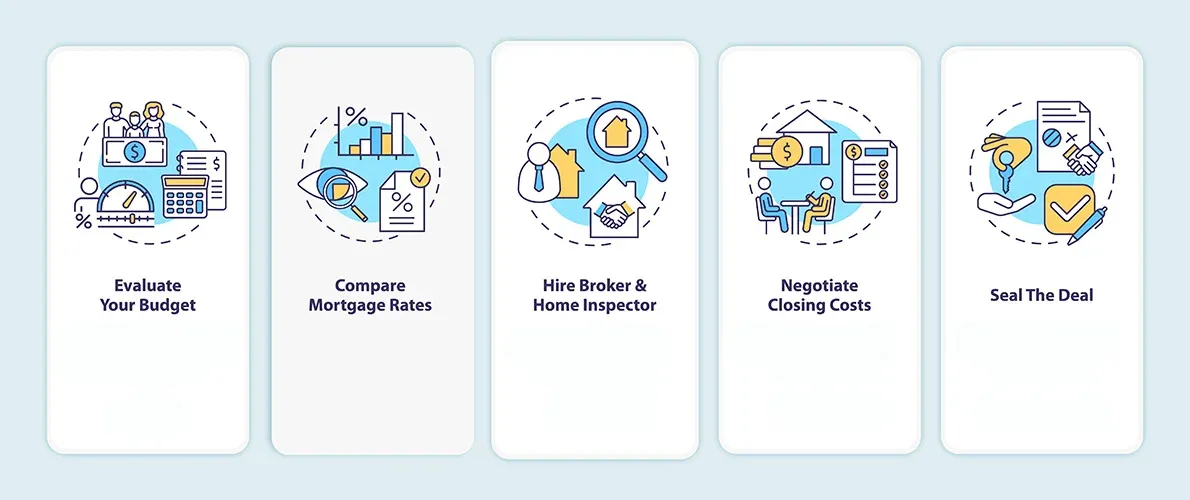
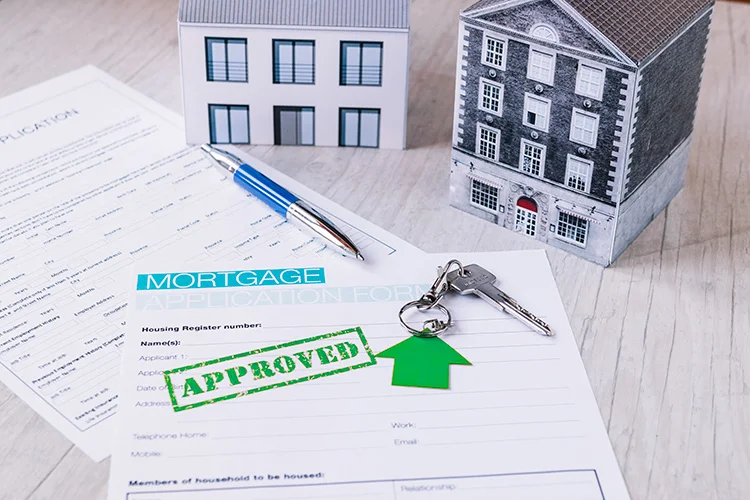

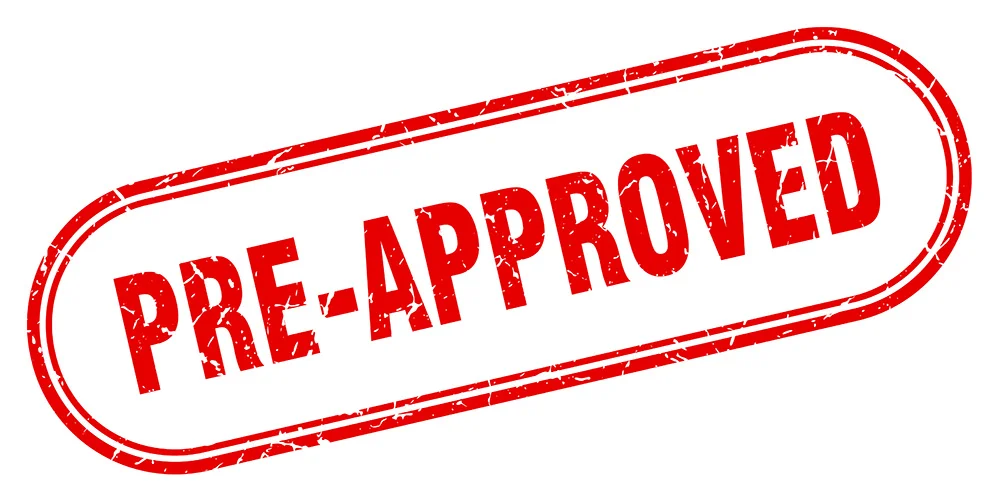



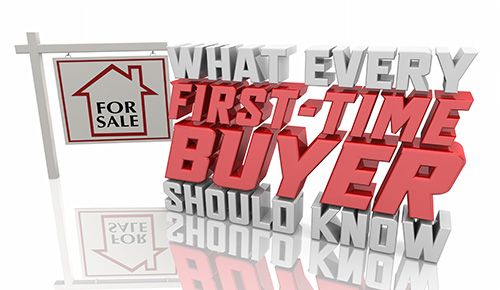
 Home affordability is the highest
Home affordability is the highest On the lookout for conventional loan programs, we miss out on special assistance programs such as
On the lookout for conventional loan programs, we miss out on special assistance programs such as  Generally, first time homebuyers dump everything they have in their savings account towards a down payment, thereby draining it of even emergency funds. The mistake they make is when they ignore or do not account for the unexpected fees associated with purchasing a new home. If you do not have any funds set aside for these expenses, you could end up in dire financial straits.
Generally, first time homebuyers dump everything they have in their savings account towards a down payment, thereby draining it of even emergency funds. The mistake they make is when they ignore or do not account for the unexpected fees associated with purchasing a new home. If you do not have any funds set aside for these expenses, you could end up in dire financial straits. Another potentially costly mistake first time homebuyers make is avoid taking necessary insurances. Title insurance and homeowners’ insurance are the two most important insurance you may want to consider.
Another potentially costly mistake first time homebuyers make is avoid taking necessary insurances. Title insurance and homeowners’ insurance are the two most important insurance you may want to consider.
 Buying a home is many American’s ideal goals, but the process involved in buying one is complex. Before purchasing a home, you need to make sure your credit and finances are in order. You’ll need to fill out different paperwork and submit various forms of verification before securing a home. Unless you plan on buying your home upfront, you’ll need to finance through a bank.
Buying a home is many American’s ideal goals, but the process involved in buying one is complex. Before purchasing a home, you need to make sure your credit and finances are in order. You’ll need to fill out different paperwork and submit various forms of verification before securing a home. Unless you plan on buying your home upfront, you’ll need to finance through a bank.